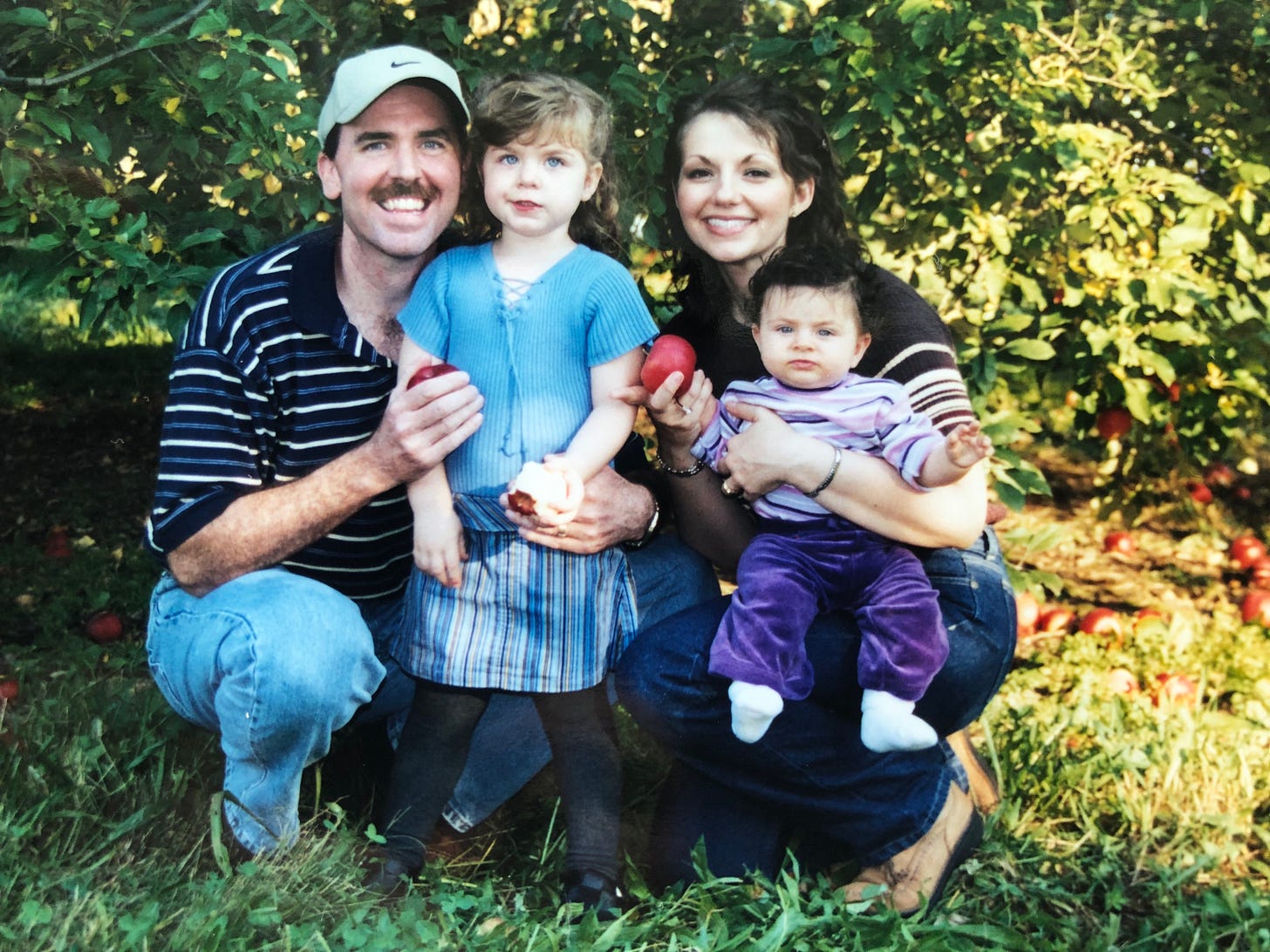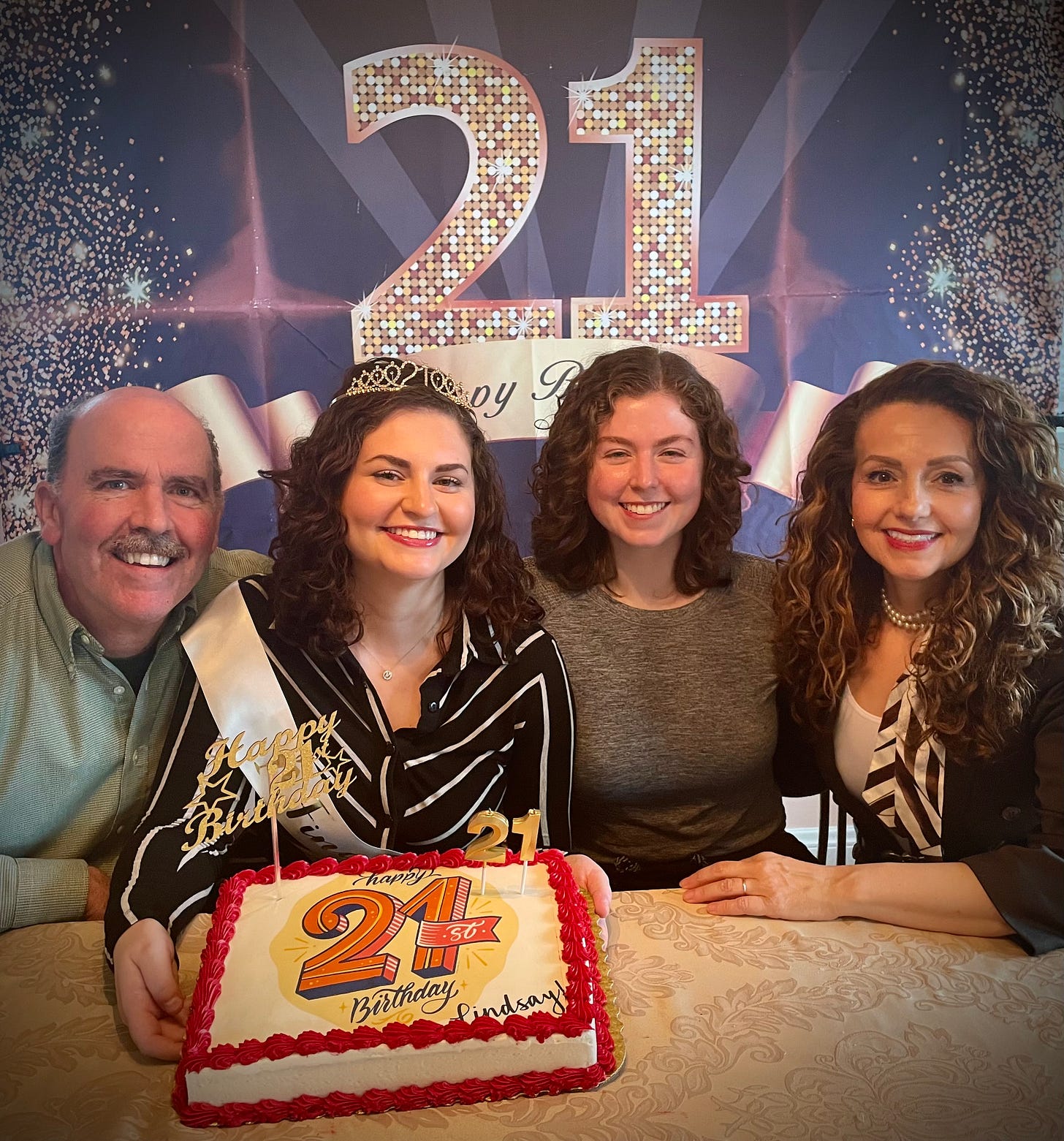Vincent O’Keefe is a writer and former stay-at-home father with a Ph.D. in American literature. Before parenthood, he taught in the English department at the University of Michigan. His writing has appeared at The New York Times, The Washington Post, Time, Newsweek, Parents, Business Insider, and City Dads, among other venues. Visit him at VincentOKeefe.com or X @VincentAOKeefe or Bluesky @vincentokeefe.bsky.social or Facebook at Vincent O’Keefe.
We chatted a bit about fatherhood, writing, and the challenges of working our way through the different seasons of being a dad.
When did you start writing about fatherhood? What prompted it?
Ironically, many mothers prompted my writing about fatherhood. Over two decades ago, I was fortunate enough to be able to choose to become a stay-at-home dad. When my oldest daughter was 18 months old, my wife and I moved to a new city for her new job. As an isolated stay-at-home dad, I was struggling desperately in my non-traditional role. Fortunately, I decided to join the local Early Childhood PTA, an organization that changed my life. Though it was female-dominated, I was welcomed fully and eventually made many friends who enjoyed my humorous “fish out of water” anecdotes about my at-home life.
One day, one of those moms encouraged me to start writing about my parenting adventures in the organization’s newsletter. My first piece described a chaotic episode of holiday shopping in which my two-year-old daughter kept chanting “I wanna be all naked” in the store. As I rushed to grab a few items from the shelves, she actually managed to remove half her clothes, which I didn’t discover until well into the disrobing process! Anyway, stories like that led another mom to tell me (with the best of intentions), “we love laughing at your life.” So did I, I realized, and my fatherhood writing journey for an audience of both moms and dads had begun.
How did your writing/approach change as your kids grew up and moved through different phases?
As my two daughters grew up, their privacy became a larger concern, naturally. Writing about other people—especially growing tweens and teens—can be a tricky process, so I have always tried to write about parenting in respectful ways. Looking back, I realize that over time my writing became less about the external dynamics of life with my kids and more about the internal machinations going on in my own mind as a father. I suppose much of the self-deprecating humor in my later writing could be read as my own desire to be somewhat “naked” to readers by admitting some of my parenting flaws along the way. I also realize now that for me (and for many readers, no doubt), humor is a helpful coping mechanism for the challenging chaos of parenthood.
What has writing about the process of fatherhood taught you about the process of fatherhood?
Writing about fatherhood has taught me that the process of fatherhood is like a continuing education class with an ill-defined syllabus and murky roles. At first, you’re the teacher in front of the students, but gradually you need to be open to learning from the students and even letting them lead the class at times. I also like to use several mantras when describing the process of parenthood: 1) It’s a marathon, not a sprint. 2) Be flexible. 3) Try to really get to know your children. 4) If you make a mistake, apologize and ask for forgiveness. 5) Run your own race.
Regarding “run your own race,” I do take some pride in modeling for my daughters a non-conventional path as a stay-at-home father for many years. On the flip side, a final mantra might be “remember that whatever you model for your kids has a deep impact.” I learned this one day when my five-year-old daughter and I were watching television and sharing popcorn. As we began eating, I saw her shoving fistfuls into her mouth at a time, so I asked: “What’s the hurry?” She replied: “No hurry. I just like eating it the way you do.”
In regards to writing about this journey, is there anything you wish you'd done differently?
When my daughters were approaching their teen years, my mother started losing her memory and was eventually diagnosed with Alzheimer’s. It was then that I wished I had spent more time jotting down my parents’ stories of their own journeys as parents. But that wake-up call did help me capture some of their lore, and it made me appreciate that stories die with their tellers—unless listeners preserve them for future generations.
On that note, I always encourage parents to document the highlights of their family life, whether via writing, picture-taking, video-making, audio recording, etc. Also, try to ensure that whatever technology used can be accessed in the future of our highly disposable society. (In other words, be sure to print out some of those photos on your phone and get them into albums! Your children will thank you decades from now.) I also recommend that parents save at least a few of the artifacts from their children’s early years. I have ours in a few plastic bins in a section of our basement I call the “Hall of Fame.”
What kind of father was your father? What elements of his style of parent did you carry forward? What did you consciously try to avoid?
My father passed a few years ago, but the first thing to know about him is that he and my mother raised six children on his salary as a teacher and later professor. Remarkably, throughout that time he remained a peaceful, good-humored man who spoke slowly and with a soothing, rarely-raised voice. He was also quite adventurous and liked to “live the examined life.” One of our favorite family traditions was his idea of occasional weekend “mystery trips,” in which we would visit nearby sights, parks, or museums together but not know the destination ahead of time. Such trips helped with family bonding and, I realize now, child development. So in my daughters’ early years, I continued the tradition by frequently exposing them to new experiences—e.g. nature centers, zoos, parks, museums, etc.
I don’t think I’ve consciously tried to avoid any elements of my father’s parenting style, but there were times when his frugality could irritate me. In hindsight, however, I was the youngest of six kids and did not fully appreciate the financial challenges of raising a large family. I also did not know then that my father had come from a very modest background. So it’s not surprising that later in life he once said to me: “I always thought I owed it to you not to spoil you.” The older I get, the more those wise words resonate. (Full disclosure: my daughters would argue that my frugality continues to irritate them sometimes, but I would argue they have no idea how much more frugal my dad was than me. It’s all relative, it seems.)
Another element of my father’s parenting style was to model optimism, which I have tried to carry forward but admit I don’t always succeed. He often gave great advice in his soft voice that usually featured putting things in perspective, taking the long view, and following one of his mantras: “This too shall pass.” Recently, I learned that his borrowed mantra continues to guide the next generation. In honor of my father, one of my adult nieces now has it tattooed on her arm in my sister’s handwriting—perhaps the ultimate “writing about parenthood.”




Loved the insights here. I'm a humour writer who has had some extended stay at home dad periods, and they are ripe for writing about. And also, learning from. But mostly writing.
Loved this thoughtful and poignant essay, especially as a humor writer who often writes about parenting. Lots of insights here but the one that stands out most is how kids notice everything- the good, the bad, how fast we eat popcorn (I’m also guilty of this). It’s one of those things I inherently know but still need to be reminded of